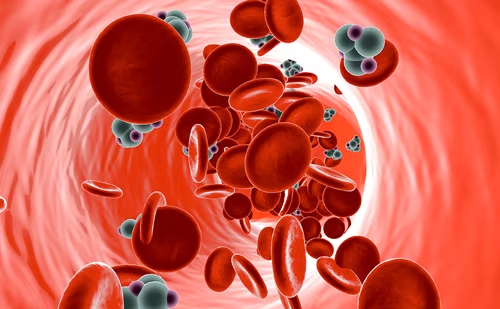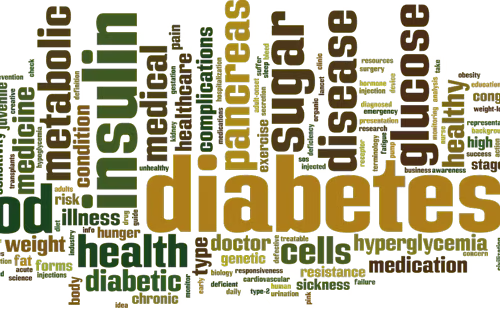IDF is an associated non-governmental organisation (NGO) with the UN Department of Public Information and is in official relations with the World Health Organization (WHO) and the Pan-American Health Organization (PAHO). The Federation also works closely with other diabetes organisations, governments, health professionals, civil society, education and research institutions, pharmaceutical and other industries and other non-communicable diseases.
IDF is an associated non-governmental organisation (NGO) with the UN Department of Public Information and is in official relations with the World Health Organization (WHO) and the Pan-American Health Organization (PAHO). The Federation also works closely with other diabetes organisations, governments, health professionals, civil society, education and research institutions, pharmaceutical and other industries and other non-communicable diseases.
The Federation is committed to working with governments worldwide and to encouraging implementation of the UN Resolution on diabetes (61/225). IDF led the successful Unite for Diabetes campaign, which resulted in the unanimous adoption of the Resolution by the UN General Assembly in 2006. It now leads the charge to get the Resolution implemented globally.
Comprehensive Diabetes Data
The Federation is committed to providing the world with the latest and most authoritative global prevalence data on diabetes, comprehensive diabetes care guidelines and the latest innovations in diabetes education. It also aims to serve as a repository for diabetes data for researchers, governments, industries, healthcare professionals and people with diabetes.
Since 2000, the Federation has produced the Diabetes Atlas, a unique resource that tracks the prevalence, costs and economic impact of diabetes globally. The Atlas is published every three years. The current edition of the Atlas is available for free online at www.eatlas.idf.org. The fourth edition of the Atlas will be released at the 20th World Diabetes Congress in Montreal in October 2009. IDF will include annual updates online to better serve the needs of the global diabetes community. The Federation hopes to implement key studies with various partners to fill the gaps in the diabetes evidence base. In addition, expert and systematic reviews will be commissioned and conducted.
The Federation has also since 2007 supported translational research projects globally. The Bringing Research in Diabetes to Global Environments and Systems (BRIDGES) programme funds translational research projects in diabetes prevention and treatment to provide the opportunity to ‘translate’ lessons learned from clinical research to those who can benefit most: people affected by diabetes. Both shortterm and long-term projects are currently under way in Australia, Cameroon, Egypt, Guinea, India, Jordan, Sri Lanka, the UK, the US, Vietnam and the Philippines. The first project results will be available at the beginning of 2010.
Guidelines and standards of care for diabetes are of particular importance to the Federation. Through its extensive networks of experts, IDF is able to research and publish models of care and guidelines for diabetes education and management to assist physicians, nurses, diabetes educators and other healthcare professionals. These tools also provide a blueprint for government health systems to implement or improve diabetes care. In addition, the Federation is currently conducting individual country assessments on access to insulin data and diabetes care – in Vietnam in 2008 and in Kyrgyzstan in 2009. The results of these Rapid Assessment Protocol for Insulin Access (RAPIA) studies will be released at the World Diabetes Congress and will be presented to the national governments.
World Diabetes Congress
The Federation will organise its 20th World Diabetes Congress this year in Montréal, Canada on 18–22 October. The Congress is held every two years and is one of the world’s largest health-related congresses. The congress provides the opportunity to discuss a broad range of diabetes issues, from the latest scientific advances to cutting-edge information on education, diabetes care, advocacy and awareness. IDF will also provide updates and new editions of the Diabetes Atlas and various guidelines and curricula. The World Diabetes Congress features state-of-the-art topics arranged into six programme streams: association development, clinical research, education, foundation science, healthcare and epidemiology and living with diabetes. Each stream includes lectures that will be held in a variety of formats to allow for constructive interaction and to share best practice: meet-the-expert sessions, debates, teaching, workshops including practical demonstrations, problem-solving or hands-on training sessions and poster sessions. Above all, the congress brings the global diabetes community together to review progress on implementing the UN Resolution on diabetes and recharge energy for the next steps in the global movement.
World Diabetes Day and Diabetes Awareness
Created by IDF and the WHO in 1991, World Diabetes Day is an official UN World Day. The campaign is led by IDF and its member associations.
It draws attention to issues of paramount importance in the diabetes world and keeps diabetes firmly in the public spotlight. The campaign is represented by a blue circle logo, which was adopted after the passage of the UN Resolution on diabetes. The blue circle is the global symbol of diabetes and signifies the unity of the global diabetes community in response to the diabetes epidemic. World Diabetes Day is celebrated every year on November 14.
The theme for the 2009–2013 campaign is diabetes education and prevention. The campaign calls on all those responsible for diabetes care to understand diabetes and take control. For healthcare professionals, it is a call to improve knowledge so that evidence-based recommendations are put into practice. The Federation aims to increase awareness of the importance of education and prevention in diabetes, and in efforts to delay complications in people living with diabetes. IDF believes that all people living with diabetes have the right to appropriate diabetes education by qualified diabetes educators.
IDF education programmes have a history of providing high-quality educational courses and tools for health organisations to develop their diabetes programming, and for advocating for increased access to care and education for people with diabetes. Currently, IDF is developing a network of IDF Centres of Education to identify gaps and build regional capacity. Organisations are selected for their regional leadership in diabetes education, their association with clinical and research institutes and their commitment to the advancement of diabetes education and management. In 2008 the second edition of the International Curriculum for Diabetes Health Professionals was released. The second edition of the Standards for Diabetes Education for people with diabetes will be released in 2009.
The Federation uses various methods to reach the global diabetes community. An important venue is its quarterly magazine, Diabetes Voice, which covers the latest developments in diabetes care, education, prevention, research, health policy and economics, as well as themes related to living with diabetes. Diabetes Voice goes to the heart of issues that are crucial to all those who can further the promotion of diabetes care, prevention and a cure worldwide, and is published in English, French, Spanish and Russian. The magazine works hand-in-hand with IDF programmes, policy and campaign efforts.
Goals for the Federation
The Federation’s work has expanded exponentially to meet the challenge of the growing global diabetes epidemic. Diabetes organisations around the world are applying for membership. The Federation’s seven regional offices are the interface between our national member associations and global headquarters in Brussels, and are critical for the delivery of our advocacy and programmes. IDF has also strengthened its executive office by bringing in specialist skills such as a diabetes educator, epidemiologist and health economist to better serve the needs of our members, and the larger diabetes community.
The UN Resolution on diabetes serves as the mandate for the Federation’s Strategic Plan going forward. The plan commits the organisation to drive change at all levels: to prevent type 2 diabetes, to develop and encourage best practices in diabetes policy, management and education, to advance and protect the rights of people with diabetes and to combat discrimination.
Political Action
The UN Resolution on diabetes has given IDF a mandate to improve diabetes care and prevention worldwide. To achieve those ends, the Federation has concluded that non-communicable diseases, including diabetes, must be put at the heart of the health agenda of national governments, the WHO and the UN. The Federation is actively involved in lobbying for political action at the World Health Assembly, the Commonwealth, the EU and the UN. Concerted efforts with other civil society organisations leading on non-communicable diseases such as heart disease and cancer are also under way.
Non-communicable diseases account for 60% of the global disease burden, according to WHO. Over 250 million people are living with diabetes worldwide, according to IDF’s Diabetes Atlas, representing 6% of the world’s adult population. IDF is committed to advocating on their behalf. The Federation is also committed to playing a leading role at all levels to support the implementation of the WHO Action Plan on Prevention of Noncommunicable Diseases 2008–2013.
Conclusion
IDF is forging ahead in its efforts to improve the lives of people with diabetes. The Federation is committed to serving as the authoritative and independent global advocate for people living with diabetes; to strengthening and disseminating the evidence base for diabetes; to increasing access to an interdisciplinary approach to the management of diabetes; and to increasing the global impact of IDF’s diabetes education initiatives.
Diabetes is now a global epidemic with over 250 million people worldwide living with the disease. IDF is committed to working with the medical and healthcare community, governments, civil society and industry to help reverse this epidemic. To do nothing is not an option.







